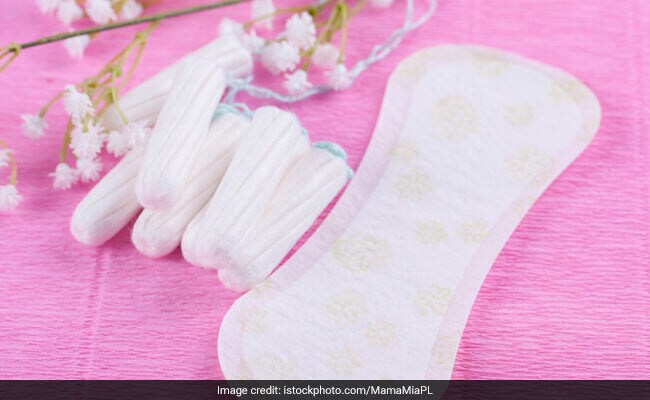Sanitary napkins and tampons are not only harmful to the environment, they are harmful to you too.

These convenient choices may not be so good for your health
HIGHLIGHTS
- Sanitary napkins and tampons could lead to infections
- Dioxin is the major irritant for the human skin present in pads
- Avoid wearing tight clothes during periods
Did you know the ever so convenient feminine hygiene product - the tampons and sanitary napkins are not only harmful to the environment but harmful to you too. More and more women try to opt for the more convenient choices available not realizing the fact that their choices could land them in trouble, health-wise. Gel-based sanitary napkins do soak all the blood and prevent staining your clothes but they aren't the safest choice to make. So is the case with tampons.
Our expert Dr. Ragini Agrawal says, "Sanitary napkins these days which soak in the blood and prevent staining are not good for health. It is one of the reasons why women complain of infections and irritation in their personal part after menstruation. If the pad or tampon stays in contact with your private part for too long without any air circulation, bacteria starts to develop in that area. Those bacteria may later lead to infections or allergy. So it is better to avoid such products."
"One should avoid these pads and tampons as much as possible. Instead, they must go for cotton pads or menstrual cups which are much safer and chemical free. But in times of need, women can use them with some precautions. They must ensure that they change their pad or tampon every four hours. Keeping it in place for too long can lead to recurring infections," she added.
 Pads and tampons could be harmful
Pads and tampons could be harmfulDioxin is usually known as a human carcinogen. It is a by-product of chlorine bleaching process and is present in your tampons and pads. Once a person is exposed to this chemical, it stays in the body for as long as 20 years. Here's what Dr. Agrawal says about this.
"Dioxin is the major irritant for the human skin present in pads. It has not been proved yet that dioxin can lead to cancer or not. It still is under speculation but there aren't any conclusive proofs for it yet. Yes, it is harmful to the skin but it may not necessarily be cancerous. There isn't complete evidence to support the statement."
Safety tips for using sanitary pads and tampons
Dr. Agrawal recommends some tips for safe usage of sanitary pads and tampons. Take a look.
1. Change the pad/tampon every four hours.
2. Do not reuse the pads/tampons.
3. Wash your hands properly before using these products.
4. Avoid wearing tight clothes at this time; this may prevent air circulation in that area.
5. Keep your private part dry.
6. Clean yourself properly.
(Dr Ragini Agrawal is the head a Senior Gynecologist at W Pratiksha Hospital)
Disclaimer: This content including advice provides generic information only. It is in no way a substitute for qualified medical opinion. Always consult a specialist or your own doctor for more information. NDTV does not claim responsibility for this information.
DoctorNDTV is the one stop site for all your health needs providing the most credible health information, health news and tips with expert advice on healthy living, diet plans, informative videos etc. You can get the most relevant and accurate info you need about health problems like diabetes, cancer, pregnancy, HIV and AIDS, weight loss and many other lifestyle diseases. We have a panel of over 350 experts who help us develop content by giving their valuable inputs and bringing to us the latest in the world of healthcare.














